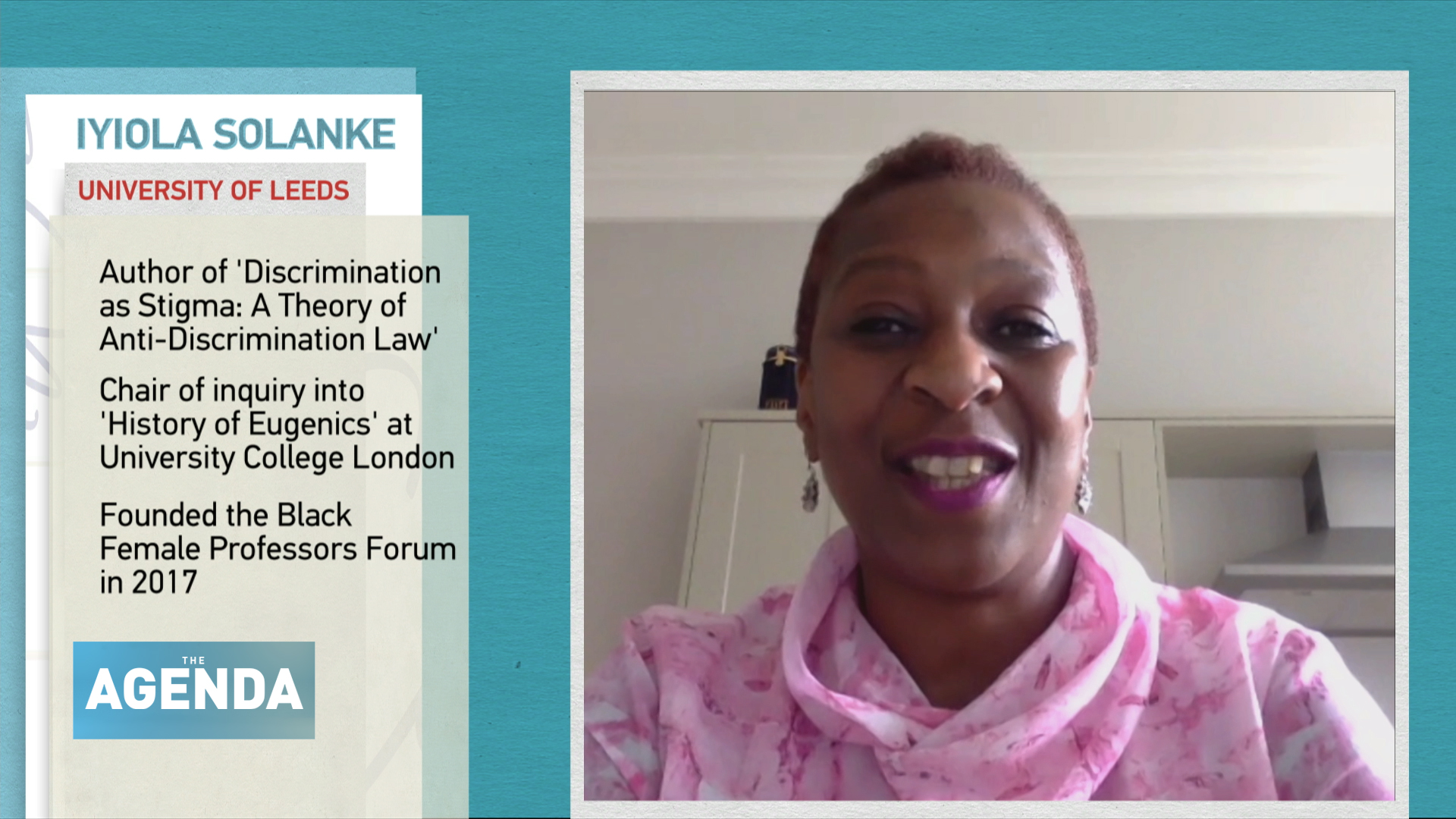05:07

Racism and discrimination in society can only be tackled by adapting and implementing the approach used by public health workers during viral outbreaks like COVID-19 and Ebola. That's the view of Iyiola Solanke, a professor at the University of Leeds in the UK.
"Prejudice is like a virus and should be treated as such," she told The Agenda with Stephen Cole, saying the similarities between prejudice and the coronavirus are that both are invisible, we don't necessarily know when we're carrying them, and both can kill.
Solanke advocates a more holistic, overall approach to tackling discrimination. "The norm is really to rely on individuals to seek justice for themselves," she explained, contrasting this with the top-down ways of treating a viral outbreak.
"We are all mandated to wash our hands more, we're required to maintain a distance of at least two meters, we're required to stay at home... there is a much broader range of institutional, organizational and social measures taken to address a virus."
For Solanke, the key is education. "The only way," she says, "is to educate our children, to take campaigns such as decolonizing the curriculum more seriously, to ensure that there are black teachers, black headmasters and black vice-chancellors in all of our educational institutions, so that we can educate everybody to be more aware of what racial discrimination looks like."